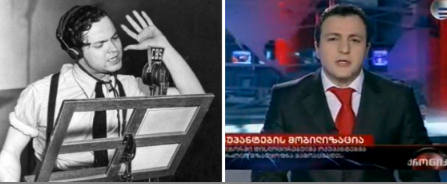As expected, President Saakashvili’s United National Movement (UNM) won nation-wide in Georgia’s recent municipal elections, with Tbilisi Mayor Gigi Ugulava winning re-election with a vote of over 55% in the Tbilisi race, competing against eight other candidates. UNM got a stunning 66% of the popular vote across the country, a convincing mandate, although a little less than half of Georgia’s registered voters cast ballots. Go here for a very useful interactive map of the results, region-by-region.
Irakli Alasania, former Georgian ambassador to the UN, finished a distant second in the Tbilisi mayoral race (also expected), with roughly 19%. Alasania is already talking about opposition strategy for the next big contest, the 2012 parliamentary elections.
Although the OSCE cited “significant shortcomings” in the electoral process, they gave Georgia a passing mark, saying the elections showed “evident progress towards meeting international standards.”
Meanwhile, the Daily Telegraph reports that Russian forces are busy constructing a “sophisticated radar and electronic survelliance station” at a base near Tskhinvali, the capital of breakaway province South Ossetia. The station would supposedly provide the Russians with the ability to “track air movements, as well as intercept mobile and other communications across the Caucuses and as far south as Iran.”
Georgians are understandably nervous about the presence of thousands of Russian troops in South Ossetia and Abkhazia, the other province involved in the 2008 war that Georgia lost. And it’s a frequent theme in Georgia, especially amongst UNM politicians, that a new war could break out at any moment.
However, it does seem unlikely. Russia has what it wants: a permanent reminder that it can change the geopolitical calculus in the South Caucasus at any time. Why spoil it all with a new invasion? Where does it get Russia? The usual answer is a cooperative interim president, temporary military occupation of Georgia to quell whatever catalyst the Russians claim was the excuse for invasion, new “elections,” and a Kemlin-friendly government.
Nevertheless, the Russian government regularly accuses Georgia of aiding terrorists—Chechen, al Qaeda, and otherwise—who conduct attacks against civilians in Dagestan, Chechnya and elsewhere in Russia. The accusations seem absurd on their face, and the interpretation in Georgia is that such charges could someday serve as a pretext for a new invasion.
Stoking the fears, or reflecting them, was a highly controversial fake television newscast in March of a Russian invasion of Georgia. The newscast, complete with bulletins from reporters in the field and film of Russian tanks advancing towards Tbilisi, was taken seriously by many Georgian viewers and sparked widespread panic. President Saakashvilii had been killed, the news anchor announced. Pro-government Imedi TV broadcast the hoax, which it explained later was supposed to demonstrate the “real threat” facing Georgia. The newscast (reminiscent of an earlier invasion hoax in depression-era America), which included disclaimers only at the beginning indicating that it was a dramatization, drew condemnation from not only the opposition, but foreign embassies.

Finally, it appears that Catherine Ashton, the High Representative for Foreign Affairs and Security Policy for the EU, wants to scrap the position of “special representative” for the South Caucasus.
This RFE article says that the proposal is based on a letter Ashton sent on 21 May to EU foreign ministers which suggested that the current eleven special representatives (EU diplomatic envoys) to areas such as the African Great Lakes, Central Asia and the Middle East be reduced. Some areas would be merged, others eliminated. Among those to be eliminated would be Moldova and the Caucasus – “geographically distant regions.”
It’s an odd move, and one that doesn’t quite jibe with the presence of the EU Monitoring Mission in Georgia, which monitors compliance with the French-brokered peace accord following the 2008 war. Apparently, some EU representatives were caught off-guard by the letter and are wary of any proposal that may imply that the EU is disengaging not just from the South Caucasus, but from areas adjacent to or in Russia’s “near abroad.”